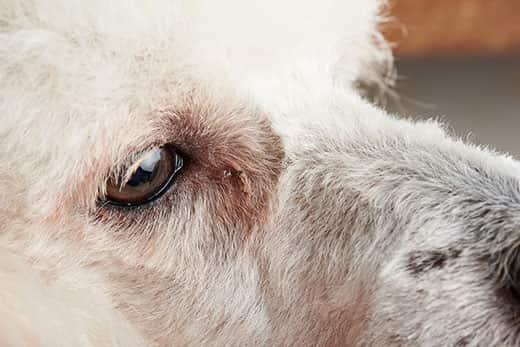
-
Find the right food for your petTake this quiz to see which food may be the best for your furry friend.Find the right food for your petTake this quiz to see which food may be the best for your furry friend.Health CategoryFeatured products
 Hill's Science Diet Adult Healthy Mobility Large Breed Chicken Meal, Barley & Brown Rice Recipe Dog Food
Hill's Science Diet Adult Healthy Mobility Large Breed Chicken Meal, Barley & Brown Rice Recipe Dog FoodAdvanced nutrition shown to support joint health and improve mobility
Shop Now Adult Large Breed Chicken & Barley Recipe Dog Food
Adult Large Breed Chicken & Barley Recipe Dog FoodSupports healthy joints, lean muscle, and beautiful coat for large breed dogs
Shop Now Adult Light Large Breed Chicken Meal & Barley Recipe Dog Food
Adult Light Large Breed Chicken Meal & Barley Recipe Dog FoodFewer calories for less active large breed dogs
Shop NowFeatured products Adult Oral Care Chicken & Brown Rice Recipe Cat Food
Adult Oral Care Chicken & Brown Rice Recipe Cat FoodClinically proven kibble technology to reduce plaque & tartar build-up
Shop Now Adult Perfect Digestion Chicken, Barley & Whole Oats Recipe Cat Food
Adult Perfect Digestion Chicken, Barley & Whole Oats Recipe Cat FoodHill's Science Diet's breakthrough nutrition supports ultimate digestive well-being & healthy microbiome
Shop Now Kitten Healthy Cuisine Tender Chicken & Rice Medley
Kitten Healthy Cuisine Tender Chicken & Rice MedleyDelicious tender chicken and rice in a mouthwatering sauce with precisely balanced nutrition to support 5 essential building blocks for lifelong health
Shop Now -
DogCat
- Cat Tips & Articles
-
Health Category
- Weight
- Skin & Food Sensitivities
- Urinary
- Digestive
- Kidney
- Dental
- Serious Illness
-
Life Stage
- Kitten Nutrition
- Adult Nutrition
Featured articles Cat vs. Dog: Which Is the Best Pet for Me?
Cat vs. Dog: Which Is the Best Pet for Me?Learn about important differences between dogs and cats, such as cost & space considerations. These factors can help you decide which pet is best for you.
Read More Fun Ideas for Kids and Pets This Summer
Fun Ideas for Kids and Pets This SummerOutdoor summer activities with your dog or cat can be fun for kids, too. Learn how they also teach kids responsibility & creates a bond with their pet.
Read More Adopting a Pet: What You Need to Know
Adopting a Pet: What You Need to KnowLearn the basics of adopting a pet, including where to begin and common questions you should ask yourself when deciding which kind of pet is best for you.
Read More -


If your dog's eye is swollen and runny, they may have a condition called conjunctivitis. If that sounds alarming, don't panic. The chances that your pooch has caught this condition, also called "pink eye" are actually quite slim. To get the lowdown on conjunctivitis in dogs, including what causes it and what you should do to help your pet, keep reading.
What Is Conjunctivitis (aka Pink Eye)?
 Conjunctivitis refers to a condition in which the pink tissue inside the eyelid, which is called the conjunctiva, becomes inflamed. There are two types of conjunctivitis in dogs. Infectious conjunctivitis, often referred to as pink eye, is caused by a viral or bacterial infection and is rare, says the Australian online retailer PetPost.
Conjunctivitis refers to a condition in which the pink tissue inside the eyelid, which is called the conjunctiva, becomes inflamed. There are two types of conjunctivitis in dogs. Infectious conjunctivitis, often referred to as pink eye, is caused by a viral or bacterial infection and is rare, says the Australian online retailer PetPost.
More commonly seen in dogs is non-infectious conjunctivitis, which can have a number of possible causes. Typically, these fall along the lines of allergies, an irritating substance getting in the eye, injury or trauma to the eye or a congenital abnormality. Animal Eye Care adds that conjunctivitis may be a sign of a more serious underlying condition, such as a viral infection.
Is It Contagious?
Non-infectious conjunctivitis in dogs is not contagious. If a case of dog pink eye is caused by a rare bacterial infection or a virus, however, Petz Park warns that the condition can be transmitted by your dog to other dogs. If you suspect your dog might have pink eye, it's a good idea to keep your pup separated from other dogs and to wash your hands thoroughly with soap and water after touching them to prevent the infection from spreading to other animals. Some types of bacterial conjunctivitis may be passed on to humans, though this is rarely the case.
If your pooch normally shares food and water, dishes or bedding with other pets, they should have their own dishes and bedding until their conjunctivitis clears up, and they should be washed thoroughly. You should let any additional caregivers, such as dog walkers, dog daycare attendants or pet sitters, know about your dog's condition and the precautions that you're taking to contain it.
Breed Predisposition
While conjunctivitis can occur in any breed of dog or mutt, certain breeds are prone to conditions that can place them at a higher risk of conjunctivitis. According to PetSure claims data, Cavoodles, Golden Retrievers and Groodles, for example, are more likely to develop conjunctivitis.
A condition called entropion, which is when the edge of the eyelid rolls inward, may also cause the conjunctiva to become inflamed. This condition is common to shar-peis and chow chows, among other breeds.


Tasty Tips
Signs of a Problem
As a vigilant pet parent, these are the signs you'll want to keep an eye out for to recognise conjunctivitis in dogs:
- Red or puffy eyes
- Eye discharge
- Eyelids sticking together or squinting
- Swelling of the eyelid lining (the conjunctiva)
- Rubbing or pawing at the eye due to itchiness or discomfort
Should Your Pup See a Vet?
If you notice any of these signs, you should have your pup checked out by a veterinarian as soon as possible. Your vet will determine whether your dog actually has dog pink eye or a non-infectious case of conjunctivitis.
While non-infectious conjunctivitis is not a serious condition in and of itself, it won't clear up on its own without treatment, and it may point to a more serious health problem that needs to be addressed. Additionally, if left untreated, your dog could sustain a permanent eye injury or even vision loss.
Diagnosing Conjunctivitis in Dogs
According to PetSure, the veterinarian will perform a thorough eye examination and may also run tests to determine the cause of conjunctivitis. Diagnostic tests your vet might run include bacterial cultures, a fluorescein eye stain test to check for corneal ulcers or abrasions, a Schirmer's tear test to check your pup's tear production, and a test for glaucoma. They may also perform several blood tests to screen for underlying illnesses.
Treating Conjunctivitis
The course of treatment your vet prescribes ultimately depends on what is causing the conjunctivitis. If they determine that your dog does indeed have pink eye, they'll more likely prescribe a bactericidal or fungicidal ointment to be applied to the eye topically. Your dog might also be given anti-inflammatory medication to help with swelling and discomfort.
If a foreign object is responsible for the irritation and swelling, your pup may need to be placed under general anaesthesia in order for the vet to remove it without risking further eye injury. Of course, if your dog's conjunctivitis turns out to be a sign of a more serious illness, your vet will work with you to take steps to treat the underlying condition.
Helping Your Dog at Home
Natural and home remedies may be helpful in providing relief to your pet, although they should never be a replacement for veterinary care. Wash your hands thoroughly before touching your pet's eyes and face to avoid causing more irritation. You should always check with your vet before applying any herbal or homeopathic remedies to be sure the ingredients are safe and won't interact harmfully with any of their prescribed medications or interfere with treatment of his underlying conditions.
Though treatable, non-infectious conjunctivitis should not be taken lightly. Now that you're armed with knowledge of what to watch for, you'll be able to take prompt action to get your pup a proper diagnosis and treatment to protect their vision and overall health.


Jean Marie Bauhaus is a pet parent, pet blogger, and novelist from Tulsa, Oklahoma, where she usually writes under the supervision of a lapful of fur babies.
Related products

Fewer calories for less active large breed dogs

Fewer calories for less active dogs

Advanced nutrition shown to support joint health and improve mobility

Supports healthy joints, lean muscle, and beautiful coat for large breed dogs
Related articles

A little exercise can make a big difference. Not only will it enhance your pet’s health, but it will beef up your relationship as well.

Learn how to stop your dog from begging at the dinner table, and understand how it can help contribute to his health.

Learn about choosing the right dog food to help ensure your mature older dog will receive the correct balance of nutrition.

Though it may seem like your four-legged friend loves nothing more than to nap on the couch, dogs need regular exercise to stay healthy just like people do.

Put your dog on a diet without them knowing
Our low calorie formula helps you control your dog's weight. It's packed with high-quality protein for building lean muscles, and made with purposeful ingredients for a flavorful, nutritious meal. Clinically proven antioxidants, Vitamin C+E, help promote a healthy immune system.
Put your dog on a diet without them knowing
Our low calorie formula helps you control your dog's weight. It's packed with high-quality protein for building lean muscles, and made with purposeful ingredients for a flavorful, nutritious meal. Clinically proven antioxidants, Vitamin C+E, help promote a healthy immune system.

